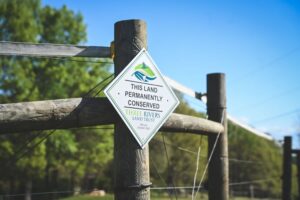
by Taylor Minich
August 2, 2017
 Towards the end of The Iliad, Homer’s classic epic – a pillar upon which Greek tragedy rests – the protagonist, Achilles, is presented with a dilemma. His is not a problem specific to himself or even the ancient world in which his story takes place. The theme like a gauntlet has been taken up by Vergil, Shakespeare, Goethe, and Melville, and judging by the 2004 adaptation of The Iliad, in which Brad Pitt plays a buff and blond Achilles, it is still relevant to modern audiences. Even you have likely presented yourself with the same question albeit under less tragic circumstances and in a less formal regard—what do I want my legacy to be?
Towards the end of The Iliad, Homer’s classic epic – a pillar upon which Greek tragedy rests – the protagonist, Achilles, is presented with a dilemma. His is not a problem specific to himself or even the ancient world in which his story takes place. The theme like a gauntlet has been taken up by Vergil, Shakespeare, Goethe, and Melville, and judging by the 2004 adaptation of The Iliad, in which Brad Pitt plays a buff and blond Achilles, it is still relevant to modern audiences. Even you have likely presented yourself with the same question albeit under less tragic circumstances and in a less formal regard—what do I want my legacy to be?
If you have not read The Iliad, or if it’s been a while since you have, and if you have never seen Troy, the film in which Brad Pitt unleashes his wrath on the Trojans, Achilles’ dilemma runs along these lines: The semi-divine Greek warrior has a choice between staying home, raising a family, and leading a delightfully mediocre life, or attaining eternal glory by fighting, and dying, in the Trojan War. As his story is still read in classrooms worldwide and his fatal weakness is a common name for the thickest tendon in the human body, it is obvious which path he chose. What is not obvious is whether he made the right choice.
 You may be wondering what an ancient Greek myth has to do with land conservation, and rightfully so. In essence, this post is not about Achilles or his legacy, but rather a tribute to all those who give without the promise of eternal glory, and an appeal for others to do the same. Unlike Achilles’ arguably selfish sacrifice, the selfless good deeds of others often go unnoticed. Working towards conserving land can come in many forms – volunteering, conservation easements, land preservation – but all represent a sacrifice in time or resources. In a world constructed around the concept of property and powered by monetary value, foregoing material wealth to benefit the environment and the ecological health of land and water common to everyone is a tough decision to make. To do so without an assurance of recognition is tougher still.
You may be wondering what an ancient Greek myth has to do with land conservation, and rightfully so. In essence, this post is not about Achilles or his legacy, but rather a tribute to all those who give without the promise of eternal glory, and an appeal for others to do the same. Unlike Achilles’ arguably selfish sacrifice, the selfless good deeds of others often go unnoticed. Working towards conserving land can come in many forms – volunteering, conservation easements, land preservation – but all represent a sacrifice in time or resources. In a world constructed around the concept of property and powered by monetary value, foregoing material wealth to benefit the environment and the ecological health of land and water common to everyone is a tough decision to make. To do so without an assurance of recognition is tougher still.
 Like a tree that has fallen alone in the woods, your legacy does not always need an audience to make a sound. And if as part of your legacy, that proverbial tree falls in a pristine and protected forest for all to enjoy, then your work nevertheless can be appreciated. In terms of improved water and air quality, access to public forests for recreation, and a continuation of the spectacular wildlife this world has to offer for future generations, we have all reaped the rewards of conserved lands. To the unsung heroes who have sown these seeds, I thank you.
Like a tree that has fallen alone in the woods, your legacy does not always need an audience to make a sound. And if as part of your legacy, that proverbial tree falls in a pristine and protected forest for all to enjoy, then your work nevertheless can be appreciated. In terms of improved water and air quality, access to public forests for recreation, and a continuation of the spectacular wildlife this world has to offer for future generations, we have all reaped the rewards of conserved lands. To the unsung heroes who have sown these seeds, I thank you.